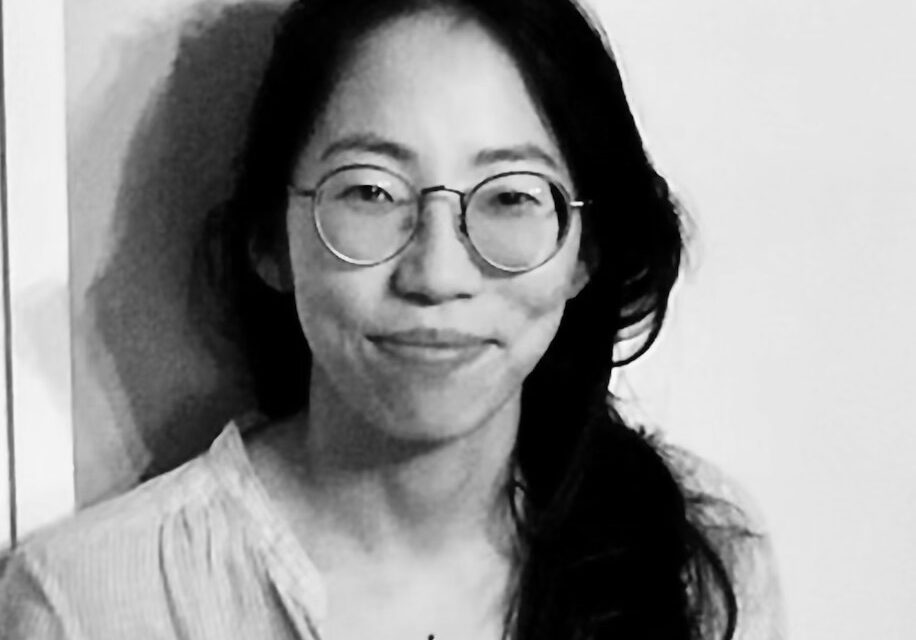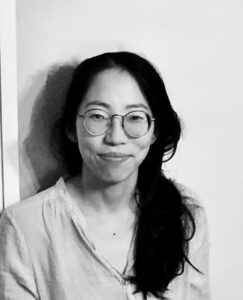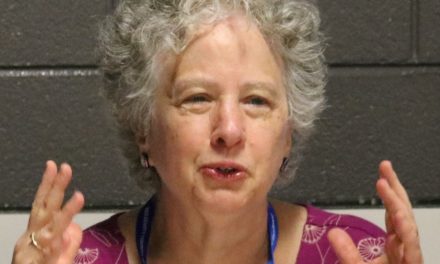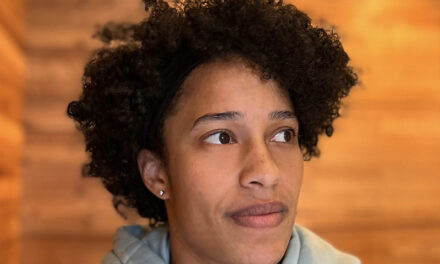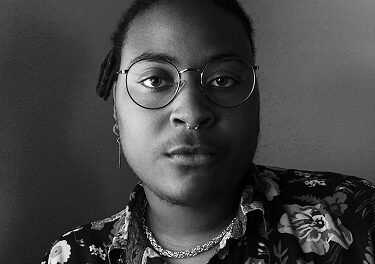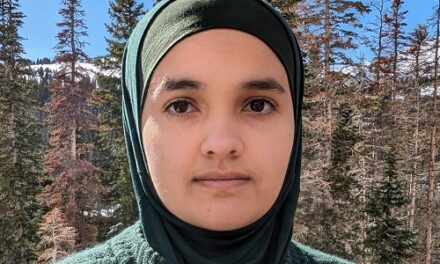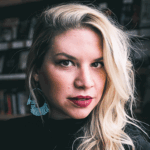Associate Editor Madeleine Wattenberg: Cindy Juyoung Ok’s “Haunting Season” opens with a declaration that “the hunt” has begun. What follows is a series of reflections on the concept of the self, especially the self under surveillance, the self as an Othered reflection. As the hunt progresses, the narrator details the draining performances and alterations that the process seems to demand of them: “One book says she’ll wait until I turn my back toward her to pull my hair out in one jolt, so I shave my long curls.” I found myself utterly absorbed within the uncertainty that Ok skillfully requires the reader to inhabit alongside her speaker—and I have admittedly checked my doorstep for cabbage several times since reading this piece.
To hear Cindy read her piece, click here:
Haunting Season
It is late August when the hunt begins. I hear through a friend that my hunter knows my name, that she liked what I’d said about her seeming to have an obsession by distance with her body. She says she has been given the call, that I may not know what I am.
One night we attend the same party and take a walk. She tells me she has sat with a rage she cannot explain but that tonight she has decided to be kind. When I ask her to call off the hunt altogether, she widens her eyes and angles her head at the same slope as the hill on which we are stopped. We get back to the porch of the party, and she lets me go.
No one can tell me how the hunt ends. I consult books, experts, and friends, but their answers provide no conclusion. The most common is that she will have to burn down my house, not to harm my body but to fray my sense of space. One book says she’ll wait until I turn my back toward her to pull my hair out in one jolt, so I shave my long curls. My doctor imagines food will be the quickest kill, so I start a diet of cabbage, which I hear is difficult to poison because it changes color when tampered with.
I feel young when I admit to my friends that I have only been hunted once before. Not by someone so obsessed with binary Western morality; my last hunter knew that people cannot be possessed, and that the idea they had of me was just a cave for their idea of self. My hair grows back too quickly, so I start getting it shaved every two days.
Weeks go by, and I hear she now counts the cars outside my house and tracks the routes of my afternoons. The dream she has created develops in plot in this way. Everyone in her dream is a version of her—the evil, the cold, the needy—revolving around the distress of our dynamic protagonist. I, forced to reflect her, must also play these roles at once.
The next time I see her, I cross to the opposite side of the street, and she becomes more agitated, mails me letters with strange symbols. Weak from eating only cabbage, I wonder if this has been the hunting, the state of being hunted. If there is no state of having been hunted, and the hunting is tautological, obscured in definition because it cannot end.
Then I hear, first as an opinion, then months later as fact, that my hunter is no longer mine. It is the next August, and she has moved on to hunting someone new. I ask around for the address of the person being hunted, and I spend all night emptying my fridge and freezer to bag and drop off my cabbage at that house in the morning.
Cindy Juyoung Ok‘s poems are published or forthcoming in journals like the Colorado Review, Conjunctions, Michigan Quarterly Review, and the Yale Review.
For more miCRo pieces, CLICK HERE

